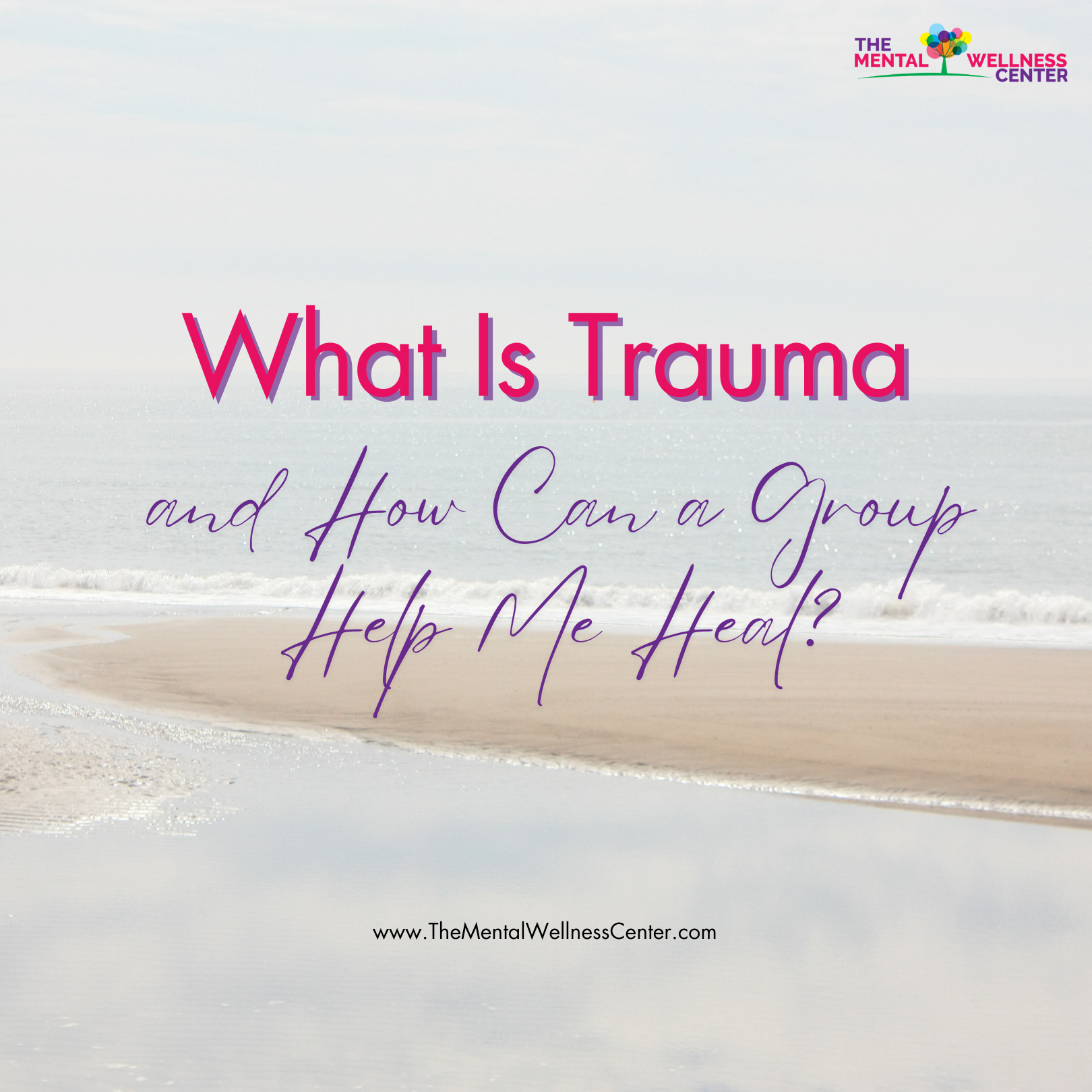What Is Trauma and How Can a Group Help Me Heal?
When you hear the word trauma, what comes to mind? Many people associate trauma with catastrophic events—such as accidents, natural disasters, or violence. While such events can be sources of trauma, the trauma itself is not the event but rather the lasting emotional, psychological, and physiological responses our body and mind have to distressing experiences.
Trauma can result from a single incident or from ongoing stressors, such as chronic abuse, neglect, or systemic oppression. It can stem from situations where a person feels powerless, unseen, or unsafe. When we encounter something overwhelming or painful, our brain and nervous system respond instinctively to protect us. This can trigger survival mechanisms—like fight, flight, or freeze—that may linger long after the event has passed. These responses can disrupt our daily lives, affecting our emotions, thoughts, relationships, work, and overall sense of safety and stability.
Trauma doesn’t just stay in the past—it often shows up in the present, in ways we don’t always recognize. It can manifest as anxiety, depression, difficulty trusting others, or even physical symptoms like fatigue or chronic pain. You may find yourself struggling with emotional regulation or feeling disconnected from yourself and the world around you.
Despite these challenges, healing is not only possible—it is our natural capacity. As human beings, we are remarkably resilient. Our brains hold a natural ability to heal and change. With time, intention, and the right support, we can process trauma and reclaim a sense of wholeness. But healing doesn’t happen in isolation. One of the most powerful tools in the recovery process is the community.
The Power of Group Therapy
Group therapy offers a supportive space where individuals can feel seen, heard, and understood. In a group setting, the burden of trauma can feel lighter when we learn that we are not alone. Shared stories and collective healing create opportunities to move beyond shame, reduce isolation, and foster reconnection with others and with ourselves.
Through genuine connections and shared understanding, group therapy helps trauma survivors feel heard and supported while also learning new coping skills. This type of healing offers self-discovery, highlighting resilience and strengths and empowering women in new beginnings. Engaging with others who have faced similar challenges can offer comfort and reassurance, fostering a sense of belonging and mutual understanding.
Benefits of Healing in Community
Within a safe and compassionate group environment, we can begin to rewire our nervous systems, experience genuine connection, and build the trust needed for lasting growth. Healing in community affirms that your story matters—and that there is strength in sharing it.
Group therapy also provides opportunities to practice communication skills, develop empathy, and gain different perspectives. These interactions can enhance self-awareness and increase cognitive flexibility, contributing to personal growth and emotional resilience.
Taking the Next Step
If you're ready to take the next step, consider joining Beyond Trauma: A Healing Journey for Women.
This is a group that is specifically designed to provide a nurturing space for women to explore their experiences, support one another, and grow together. You don’t have to carry this alone. Join a community that can support you and walk alongside you on this journey. Healing begins here—in connection, in community, and with you.

